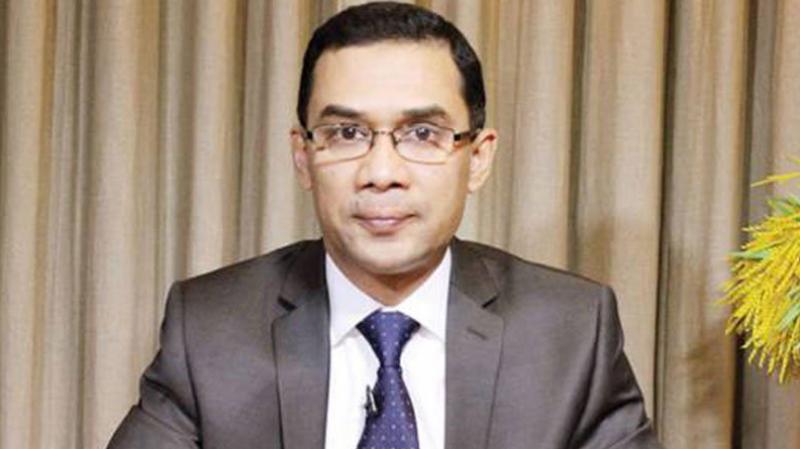 BNP leader Tarique Rahman is unlikely to be extradited from the UK to face the charges of corruption he is convicted of in Bangladesh.
BNP leader Tarique Rahman is unlikely to be extradited from the UK to face the charges of corruption he is convicted of in Bangladesh.
The acting BNP chief had been granted temporary leave to remain (TLR) in Britain under the Human Rights Convention over a perceived threat to his life in Bangladesh.
This TLR was converted into indefinite leave to remain (ILR) on human rights grounds, which could in some instances be referred to as political asylum if the submission made to the UK Home Office is that his life is at risk for political reasons.
"In very basic terms, without reference to any specific case, someone who has been granted political asylum cannot be extradited,” says Jasvinder Nakhwal, a leading solicitor and member of the UK's Extradition Lawyers Association.
“The asylum or refugee status comes with a certain acceptance that the individual faces risk to his life in some shape or form,” she added.
Nakhwal, however, says that this does not mean a state wanting an individual to face justice in his home country should not make a legal effort.
"The process can start with the arrest of the individual concerned and then arguments being presented in court. However, the matter is likely to end there," she said.
Tarique Rahman now lives is London’s south-west suburb of Kingston with his wife and daughter.
The son of BNP chief and former PM Khaleda Zia was arrested during the military-installed caretaker regime. He went to London after receiving bail in 2008 and has been there since.
Two years ago, the High Court sentenced him to seven years in prison over a money laundering case. He was also sentenced to 10 years in prison in the Zia Orphanage Trust graft case on Feb 8.
Khaleda has been in prison since the verdict in the case was delivered. The BNP appointed 53-year-old Rahman as acting chairman since his mother’s imprisonment and has been following his instructions from London.
During her visit to the UK for the Commonwealth Heads of Government Meeting (CHOGM) earlier this month, Prime Minister Sheikh Hasina said at an Awami League organised event in London that Rahman should be brought back to Bangladesh to face justice.
“I am speaking to the British government. How can a convict live here? They must send him back quickly,” she said.
The UK and Bangladesh have an extradition treaty in place, with Bangladesh falling under the Category 2 list of territories, which needs an extradition decision to be endorsed by both Britain’s Secretary of State for Home Affairs and the courts.
However, Rahman’s ILR status on human rights ground would make such an extradition process extremely complicated.
A source close to Rahman also dismissed the ongoing debate over his nationality as not being based on facts.
“Even if a person’s passport has expired, it does not mean his nationality is affected. A passport is a travel document. It has no relation to a person’s nationality,” the source said.
“There are millions of citizens in Bangladesh but not everyone has a passport. That does not make them any less Bangladeshi,” he said.


